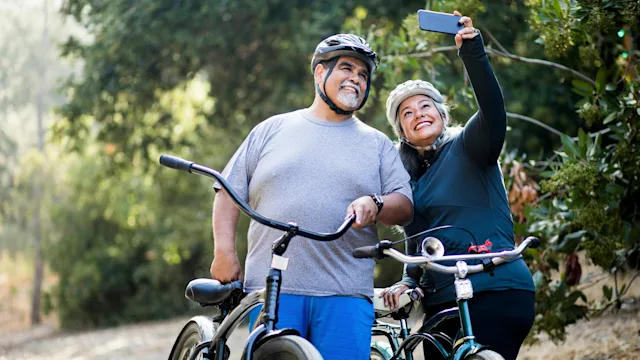Key takeaways:
For most of her life, Kate Manne has experienced discrimination because of her body size.
Kate sees fatphobia as an important social justice issue.
Kate is a philosopher and associate college professor who recently wrote a book about fatphobia.
As one of three girls at a previously all-boys school, Kate Manne says she hoped for a good college-prep education. But she also remembers learning firsthand about misogyny — prejudice and hatred toward women.
“I was a somewhat chubby teen,” Kate says. “The form the misogyny often took was bullying based on my body size.”
Her locker was defaced with a fat slur and drenched in fish oil. A close male friend said her figure left something to be desired. And before graduation, she was named “most likely to have to pay for sex.”
Kate coped by staying frozen for years. Then, she discovered the fat activism movement and realized she wasn't the problem.
“It wasn't something wrong with me and my body,” she says. “This was something wrong with society and the way it was treating people who were larger — women and girls especially.”
Today, Kate is an associate professor of philosophy at Cornell University. Her experience with misogyny and fatphobia has helped shape her life’s work. She is the author of two books about misogyny. In January 2024, she released her third and most personal book, “Unshrinking: How to Face Fatphobia.”

Kate says her writing and activism didn’t set her free from the effects of fatphobia. Like many women, she tried diet after diet, losing weight only to gain it back. She says she experiences discrimination in her work, in social contexts, and from healthcare providers.
When Kate became a mother, she realized she needed to set a better example for her young daughter. That’s when she stopped dieting and obsessing about her figure. Now, instead of striving to be thinner, she strives to make the world better for people of every size.
What fatphobia is, and how to cope with it
Fatphobia is more than fear of fatness. The definition also refers to prejudice, hatred and discrimination around fatness.
Read more like this
Explore these related articles, suggested for readers like you.
“Fatphobia is everywhere,” Kate says. That includes healthcare, social media, education, and more. People in larger bodies are often seen as ugly or stupid, Kate says.
Her solution to fatphobia is not to try to change our attitudes toward our bodies. It’s about working to transform our culture and cut off fatphobia at its source.
Here are Kate’s key strategies for dealing with fatphobia.
Realize your body isn’t the problem. “There's nothing wrong with being someone who lives in a larger body,” Kate says. “You should be able to get adequate healthcare, education, employment. And you shouldn't be subjected to damaging forms of stigma on the basis of your size.”
Find community. People of all sizes can support each other and challenge fatphobia, Kate says. “Shame is very isolating,” she says. “It's very lonely. One way to push back against shame is to form connections with other people who you're in solidarity with.” She recommends the podcast “Unsolicited: Fatties Talk Back.”
Advocate for people who are larger than you. “For every fat person who feels bad about their body, there's a person who’s even larger, who might face even worse discrimination,” Kate says. “Asking yourself, ‘Could I be a better ally to people who are larger than me?’ is an excellent question that can help you form community and also give you a sense of responsibility to other people.”
Loving your body more is not enough
Some people respond to fatphobia by encouraging positive attitudes toward our bodies. But Kate says this approach doesn’t address the root problems.
“Loving your body more won’t help you fly safely and comfortably and without stigma when airline seats are getting increasingly smaller,” she says. “Loving your body more won’t fix any of what we really need to fix in our system.”
Instead of body positivity, Kate encourages body reflexivity.
“My body is for me; your body is for you,” she says. “And our perspective on our bodies is the only one that matters.”
Thinner isn’t always healthier
The connection between health and weight can be complicated, Kate says. Someone’s body mass index (BMI) is not a perfect measurement of health. She points to research that indicates people with a BMI of 25 to 30 live longer than thinner people. In “Unshrinking,” she writes: “The deadliness of fatness has often been exaggerated, both by journalists and some researchers.”
She stresses that losing weight can create problems of its own.
“Most people who do lose weight through diet and exercise tend to regain that weight over a 4- or 5-year period,” Kate says. “And there are serious independent health harms of weight cycling — going up and down in weight repeatedly.”
How to be part of the solution to fatphobia
Fatphobia affects us all, no matter what our body size is, Kate says. She encourages people to work to reduce its effects. Here are some of the ways Kate suggests dealing with fatphobia.
Eliminate judgmental comments and attitudes about body size. Fat jokes, criticism, and even compliments about weight loss are problematic, Kate says. A better approach is to stop evaluating people based on body size, she says.
Change the conversation about food. Labeling foods as “good” or “bad” isn’t helpful, Kate says. “There's also a place for foods that are consumed for fun and joy and pleasure,” she points out.
Parent effectively around food. Kate suggests providing structure but encouraging kids to trust their own appetites. For example, parents can serve several foods at a meal, letting their children decide which ones and how much to eat. She recommends the intuitive eating approach and the work of Virginia Sole-Smith.
Embrace activism. You don’t have to march or start a petition, Kate says. One way you can be an advocate is by staying aware of legislative bills that affect the fat community. She encourages people to contact their lawmakers and make their views known.
Work toward accessibility. Kate teaches about body diversity. But she had to make an extra effort to make sure her classroom had seats that fit everyone. “Go out of your way to see that there are simple things — like chairs that will fit a variety of bodies comfortably,” she suggests. “That’s a small thing you can do to be more inclusive.”
Fatphobia as a social justice issue
Fatphobia won’t go away overnight, but Kate does see some progress. Laws against size discrimination are being passed or introduced in some U.S. locations. Kate is seeing more awareness of the complex relationship between weight and health. Each step forward comes with a backlash, Kate says, and she sees that as part of the process.
“I think progress and backlash are perfectly compatible,” she says.
Kate’s daughter and others in the next generation will still have to cope with fatphobia, she says. But Kate says she hopes they will face fewer obstacles than she has.
“I hope we can find political solidarity, instead of personal shame, and be enriched in the process — both on behalf of ourselves and also still-larger people,” she says.

Why trust our experts?




















